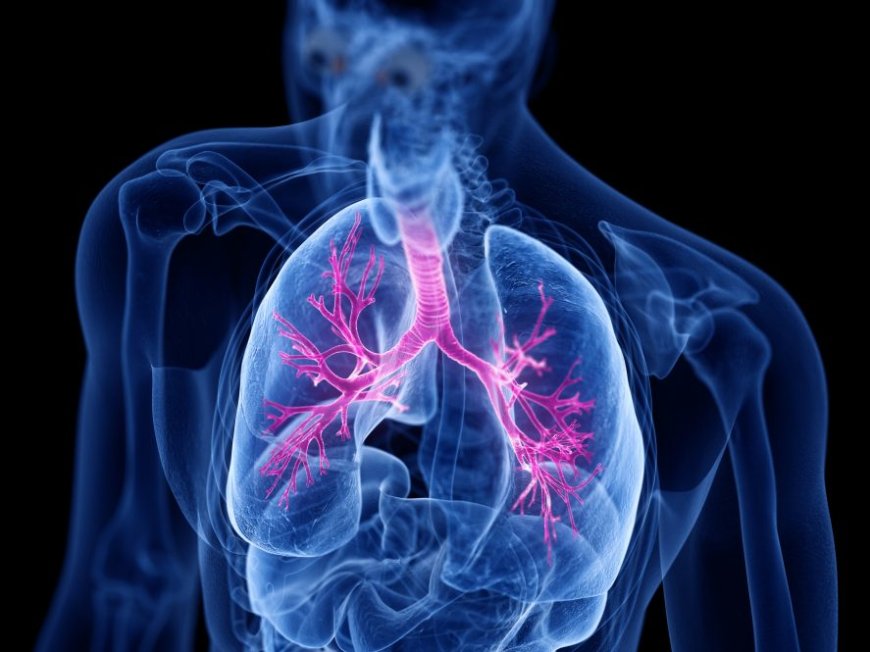Is Asthma a Genetic or an Acquired Disease?
Although it is a genetic disease that is a common occurrence, not all cases of this disease are caused by genetics. It is now being reported to affect people of all ages and gender.

Asthma is a lung condition that causes inflammation of the airways. The inflammation makes the airways expand and makes them more susceptible. It causes wheezing as chest pain.
Although it is a genetic disease that is a common occurrence, not all cases of this disease are caused by genetics. It is now being reported to affect people of all ages and gender.
It was discovered that someone who has a family experience of this illness has a greater chance of getting it, which suggests that it's genetic.
What Is Asthma?
A lung condition that is affecting people of all different ages. It's among the most prevalent chronic illnesses among children, however, it also can affect adults.
Chest tightness and coughing are signs of asthma, which can occur during the night or at dawn. If you're suffering from asthma, it's every day. However, asthma attacks occur only whenever your lung is irritated.
We don't know all that causes asthma, however environmental, genetic, as well as occupational factors have been associated with the development of the condition.
It is more likely that you develop asthma if someone else in your immediate family suffers from it. Atopy, which is the genetic predisposition that causes an allergic disorder, maybe a key factor for the development of asthma that is allergic. But, in general, you are not the same.
The drug Iversun 12mg is used to treat the problem of asthma.
Environment-related factors like mounds of moisture or moistness, as well as allergens, such as dust mites and secondhand smoking tobacco, have all been associated with the onset of asthma.
It could be caused by pollution from the air or a viral lung infection.
What Is an Asthma Attack and How Do I Prevent It?
The chest is tight, the cough is a bit louder wheezing, chest tightness, and trouble breathing are all signs of an asthma attack.
The problem is felt within the airways in your body which are the pathways that carry oxygen to your lung. When air flows through your lungs, the airways narrow. This is similar to that of trees, whose branches get narrower when they travel over the main trunk.
The lungs' sides The airways expand and the airways narrow when you suffer from an asthma attack. There is less air entering and leaving your lungs. The mucus created by your body blocks the airways.
Being aware of the symptoms that signal an asthma attack, staying clear of triggers, and adhering to your doctor's recommendations will help you manage your asthma.
Once you've got your life in control and you're in a position to:
-
There won't be wheezing or coughing
-
You won't experience wheezing or coughing symptoms.
-
you'll have a better night's sleep
-
you won't have to miss your job or school
-
you'll be able to take part in all sports,
-
You won't need to visit the hospital.
What Is the Cause of Asthma Attacks?
If you're exposed to "asthma triggers," you might suffer from the symptoms of asthma. The triggers you experience could be different from the triggers of another person.
Learn your triggers and ways to avoid them. If you cannot dodge your triggers, you should be alert for any attack.
Iverheal 6 mg tablet (commonly used for parasitic infections) is designed to treat asthma.
Dust mites, tobacco smoke, outdoor air pollution, the allergen cockroaches, pets, mounds, smoke from burning grass or wood, and even diseases such as influenza are among the most frequent factors.
What's Your Reaction?
 Like
0
Like
0
 Dislike
0
Dislike
0
 Love
0
Love
0
 Funny
0
Funny
0
 Angry
0
Angry
0
 Sad
0
Sad
0
 Wow
0
Wow
0












































